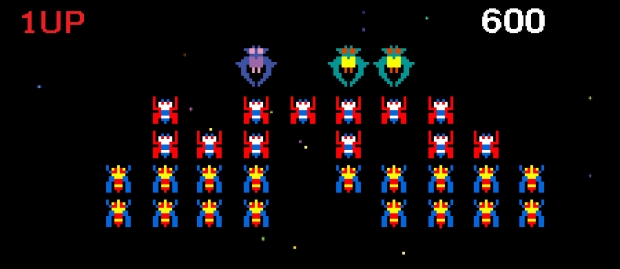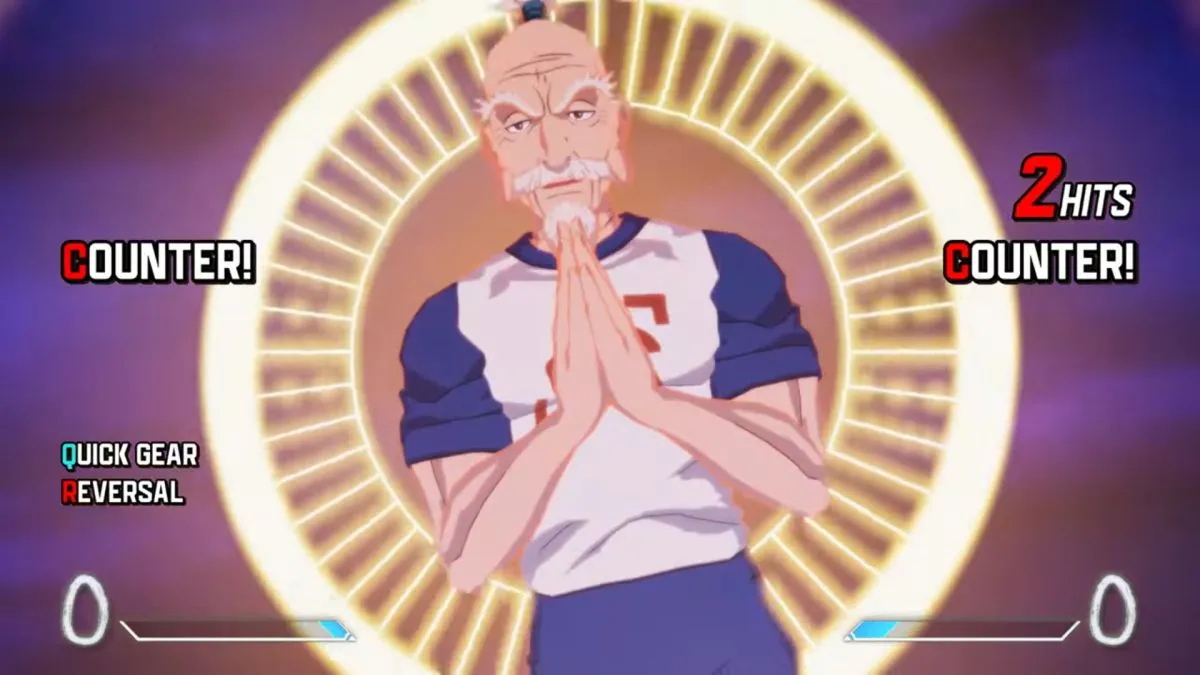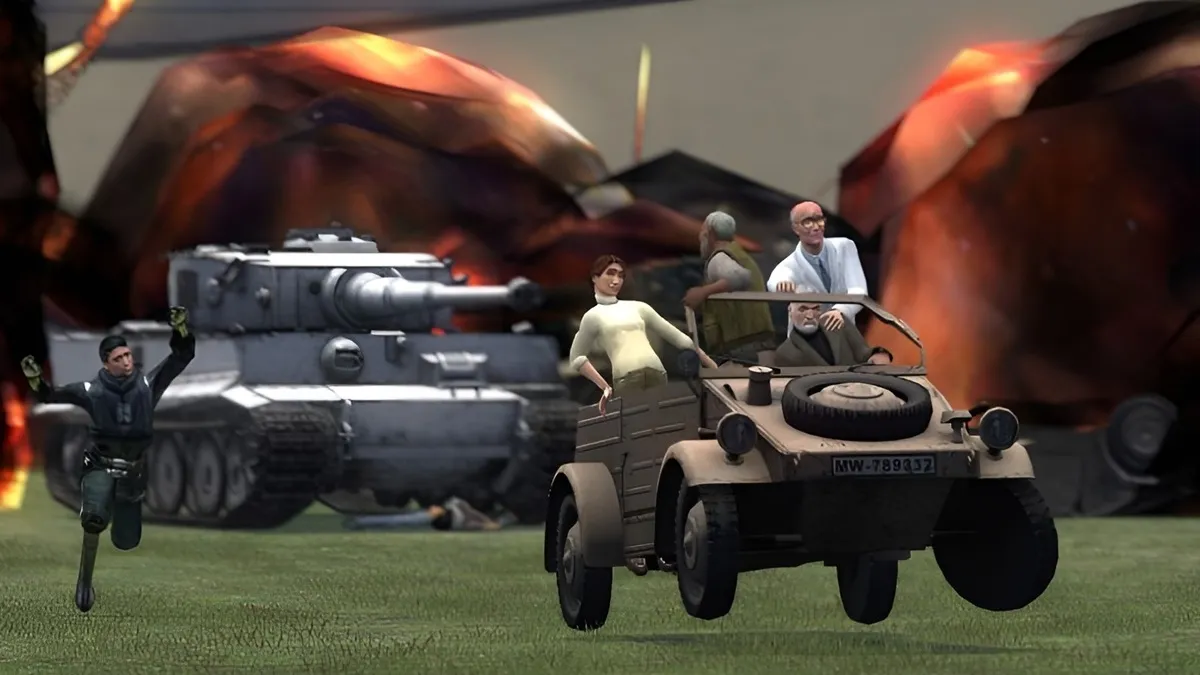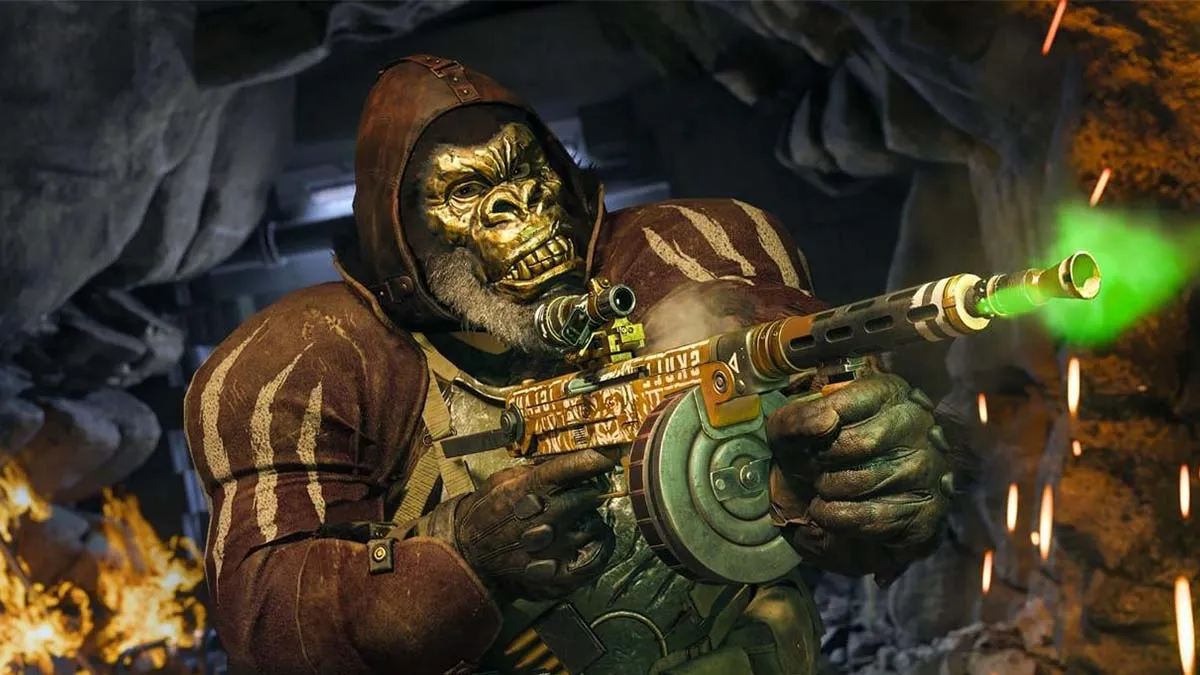[It’s time for another Monthly Musing — the monthly community blog theme that provides readers with a chance to get their articles and discussions printed on the frontpage. — CTZ]
I began playing videogames at a very young age. A point at which my rapidly developing mind was quite malleable. I couldn’t do math yet, but I could beat the crap out of River Raid. I sucked at tying my shoes, but I was decidedly awesome at Galaga. So in between learning to spell “duck” and trying to color in the lines, I enrolled daily in the School of Games, where topics varied from division in Math Blaster to typing skills in Mario Teaches Typing.
But the proportion of truly educational games that I played is extremely low. Most of the time, I was playing new releases on Atari, then on NES, Genesis, Gameboy, and so on. For the most part, I just played whatever my brother had. As I continued to develop, I continued to play, branching off into tons of other game types. I didn’t know, but throughout that whole time, I was constantly learning. Sure, I wasn’t zapping numbers with a laser beam anymore, but my mind was unconsciously soaking up information.
Today, I realize how much games have taught me. Sure, not all of it is vital life information, but there are enough valuable bits of wisdom that it makes me glad that I played those games in my childhood.
However, something has changed. I don’t think I’m learning anymore.
So, what happened? Why have games ceased to be educational to me? Have games taught me everything that they have to teach, or have they just stopped trying? To answer this, we have to start by examining those games in the past that offered truly educational experiences.

I was never much for history in my early years. After all, who cares about a bunch of shit that dead guys did? I wanted to know about the future — technology, computers, and whatnot. However, one interest has remained constant for my whole life: I am fascinated with Japanese history. Samurai, serfs, swords — there’s nothing more awesome. But not once was this topic brought up in any school that I attended. All of the information that I know about Japan’s history I have learned from personal research and, mostly, videogames.
It all began with a little strategy game called Nobunaga’s Ambition, which is now available for the Wii Virtual Console. Now, I have to qualify this by admitting that I have no idea which game or games in this series I played, but that’s unimportant. They all offered a world of 16th century turn-based strategy full of armies fighting for the unification of Japan. As Oda Nobunaga, I allocated resources toward training my soldiers, supporting a healthy economy, and keeping those dammed peasants in line.
Later came Kessen, a game somewhat similar to Nobunaga’s Ambition. In it, you choose between the Eastern forces of Tokugawa Ieyasu and Ishida Mitsunari’s Western Toyotomi Clan. The game depicts famous battles from this period of Japan’s history, including perhaps the most famous battle from the feudal period: The Battle of Sekigahara. The game’s presentation of the historical events is actually fairly accurate, but I wanted more. Soon, I was reading about daimyos, shoguns, and one of the most amazing periods in Japan’s history.
Today, I would love nothing more than to save up the money to make a month-long trip to Japan to truly explore its rich history — to see the sights for myself. And why? It can all be traced back to my time with games like Nobunaga’s Ambition and Kessen. I can state with complete certainty that, had it not been for those games, I would not have such an interest in Japanese history and culture, and for that, I am extremely grateful.

Visiting my grandmother in Florida was always filled with trips to nearby docks or on deep-sea vessels to go fishing. I, being rather young, was generally unsuccessful (I once bagged a stingray and it scared the piss out of me). However, the conversion van that we took across the country was equipped with a 12-inch TV and NES, and I had plenty of fishing success playing The Blue Marlin. In addition, I learned what little fuckers those fish could be.
Basically, the goal of The Blue Marlin was to catch a big ass fish. Simple enough, right? Amazingly, there was a decent amount of depth to the game. For instance, finding the biggest fish was often a matter of choosing the right bait or lure and then following around a school of smaller fish for a while, waiting for a real catch to appear. Get your boat too close, however, and you’d scare them all away.
Your problems didn’t stop there. There’s plenty that can go wrong once the fish is on your line. Perhaps most infuriating for an amateur couch fisherman was the rare instance in which a particularly frisky marlin decided to try to use your boat’s propeller to cut the line. If you don’t react correctly (which, admittedly, was limited to a few pre-scripted choices), you’d soon be watching your prized catch swim off into the sunset.
Now, my time with this game hardly made me into an expert fisherman. I still can’t catch a damn thing. Hell, I don’t even know if what the game taught me was anywhere near accurate. But I turned into a complete badass in that game. I knew when my line tension was too much and how to relieve it. I knew when my reel needed to be adjusted. I knew how to manage fatigue when trying to reel in a particularly large catch. I knew that making a marlin thrash and jump about in the water was an effective yet risky way to tire it out. And, perhaps most importantly, I learned that you really don’t want to get a Great White on your line. Best to just cut it, lose your lure, and move on.
I’ll readily admit to not giving a damn about fishing anymore. I don’t particularly like the idea of wasting a day on a fishing boat only to come home with nothing. However, I’ll never forget the years that I spent as a true fisherman out on my own boat, navigating from port to port in the hopes of catching the biggest blue marlin.

When I was young, I went through a lot of phases in terms of what I wanted to be when I grew up. Perhaps the longest was my “fancy medical term” phase. In fourth grade, I decided that I wanted to be an anesthesiologist. I have no Earthly idea why, but it’s a true story. At some other random point, I decided that it would be just super awesome to look at x-rays all day, so radiology was my new future field. Of course, neither of those happened.
Back in those days, games ran largely off of DOS. They also looked like complete shit. Regardless, some developers managed to put out some pretty deep experiences. One such experience was found in a game called Life and Death, released in 1988. You’re placed into the role of a surgeon who must diagnose and operate on patients. However, this is no Trauma Center — the game’s actually quite realistic. Forget to scrub the area and you’ll kill the patient with an infection. Forget the anesthesia and you’ll be treated to a terrible scream.
What did I learn from this game? Surgery is fucking hard.
Nothing taught me this more than the many, many times that my seven-year-old (total approximation) self tried to perform an appendectomy. Not once did I ever successfully complete a surgery. My cuts were crooked and my ability to stop bleeding with clamps was appalling at best. I often cut into some guy to remove his appendix only to discover that he just had a tummy ache. It was a disaster.
However, I did get my first taste of surgery. I learned about antiseptic, suction, scalpels, sutures, and dozens of other medical tools. I became intimately aware of the dangers of infection during surgery. And for a bit of pertinent knowledge, I learned that the appendix is on the right side of the abdomen, and if it hurts like hell when you press down on that region, it’s time to go to the hospital.
So, I might not ever plan to perform an appendectomy on myself (especially since those are sometimes handled laparoscopically now), but I found it fascinating to delve into the world of surgery for brief moments, if only to experiment with cutting guys up without any ramifications other than a picture of a dead guy in a hospital morgue. And, hey, if I ever have to hack out my appendix, at least I know what side it’s on.
 Yeah, it’s from Diablo 2.
Yeah, it’s from Diablo 2.
You find a whole lot of shit when you’re wandering around in a game like Diablo. As the very first game that I played online, Diablo became quite a minor addition. I traveled the levels of Hell accompanied by some guy who had a strange fascination with the band Catherine Wheel, and we fought to find more and more crazy shit (you know, when we weren’t taking advantage of the duplication exploit).
From falchions to sabers, from hauberks to full helms, I had more unfamiliar terms thrown at me in my first few days with that game than in an entire year of English class. It took me about six years to figure out how to properly pronounce sepulcher (I always read it in my head like “sell-fuck-ler”). And, hey, it also taught me one of my first Spanish words! I also learned about the awesome effects that placing a jewel in a weapon can have. Wait …
Then there were all of the adjective. Oh, the adjectives! I’m fairly certain that playing Diablo was the first time that I heard words such as ornate, eldritch, and most certainly thaumaturgic. Come to think of it, what the Hell does that mean? Google to the rescue.
Sure, knowing the names of various historical weapon types isn’t exactly the sort of thing that will help me pull a Ken Jennings on Jeopardy, but there was something enjoyable about learning them anyway. Today, it may do nothing more than make me feel extremely nerdy when I identify the exact type of swords used in Troy, but it’s a nice reminder of how I learned all that nonsense in the first place.
Oh, and I can’t forget the most valuable lesson I learned from that game: never trust people named Wirt.
Lessons Learned?
So, there’s obviously a lot that games taught me in the past, and one would think that, with the vastly superior technology that we have today, games would only be teaching us more and more. From where I’m sitting, though, this isn’t the case. Aside from pseudo-educational WWII games that seem to be in great, great supply, the quantity of educational experiences outside of Brain Age (which, you could argue, isn’t actually educational) seem to be nearing extinction.
However, this begs the $20 question (I’m poor, all right?): is it the fault of the games, or is it my own? That is, have I learned all that games can teach me, or have normal games ceased to be educational? Is there untapped potential for games to make us smarter?
I don’t have a definitive answer, so I’ll take the middle ground: I think it’s both.
With a university degree in English and countless life experiences on my belt, I quite possibly have passed the border into territory where the lessons taught by games just can’t reach me anymore. For one, I just play different games now: I haven’t played a fishing game since, well, The Blue Marlin. I only spent a brief amount of time with Trauma Center. In most cases, I’ll pick a good multiplayer experience or something heavily driven by story. Anything expressly marketed as educational I’ll steer completely clear of. And where my young mind might have been looking for new things to learn at every moment during my gaming sessions, I just don’t feel like I do this anymore. Maybe I’ve just stopped looking…
Then again, maybe games just don’t set out to educate their players anymore. After all, those like me who grew up on Atari and Nintendo make up a huge proportion of the current gaming community, and the first thing on our minds isn’t usually, “Fuck this game! It isn’t teaching me about Mongolians!” I’m sure that developers realize this and instead allocate their development resources toward other aspects of the game that most people consider far more important (60 FPS, anyone?).
Regardless, I think there’s still room in the gaming world for games like Kessen that do a great job of offering true historical information without making the whole experience feel like history class. The problem is that the real game developers need to be the ones to initiate this, or else we’ll end up with more The History Channel: Civil Wars. They have to be real games, where the focus is still upon the gameplay experience.
What about experiential education (for lack of a better term) such as surgical knowledge, fishing, etc. Some games still do a decent job of this, but I think there’s room for improvement. The problem, as I see it, is a complete saturation of FPS games. Now don’t get me wrong — I love me my FPSs. But with so many extremely similar games on the market with wildly varying quality, it’s easy to see the market as one big FPS pool. And, in some ways, perhaps it is. Unfortunately, most FPS games aren’t going to be educational, unless we count those WWII games that teach the most basic possible information that everyone probably already knows.
Still, there are random bits of brain food that can be had from games. There’s a fair bit of real-world information throughout the Metal Gear Solid series (though it’s hidden amongst the series’ storytelling craziness), and Fallout 3’s soundtrack gave me perhaps the best possible glimpse into the mindset of many Americans during the periods before and after WWII. Still, I feel like I have to struggle to find ways that games can educate me. I’ve even gone so far as to consider if the newly released Wii Tiger Woods 10 will help me with my golf game.
Perhaps it’s a testament to my current happiness with the overall direction of gaming that I don’t see more untapped potential (Then again, I could always write another article about game stories … ). But I truly do have a desire to see more games make attempts to offer some genuine information. It can only serve as yet another way that games enrich our lives, and isn’t that the ultimate goal?




